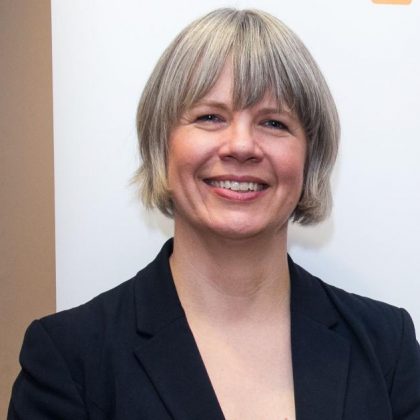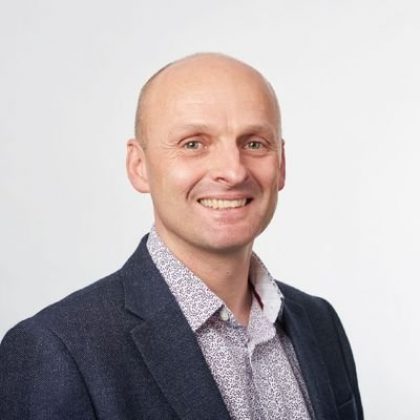Supporting art, drama and music therapists as AHPs and Psychological Professionals
Report
Across NHS England, the Deputy Chief Allied Health Professions Officer, Beverley Harden and the National Clinical Lead for Psychological Professions, Adrian Whittington, are working closely together to support art, drama and music therapists to identify as both Allied Health Professionals and Psychological Professionals.
Following research exploring the preferences of art, drama and music therapists and services, we are aware that most highlighted a preference for identifying as both Allied Health Professionals (AHPs) and Psychological Professionals.
Art therapists and art psychotherapists, along with drama and music therapists, are well-versed in adapting their practice and working within a wide range of clinical settings – NHS, private healthcare, education, prisons, community, and voluntary sectors. The clinical or therapeutic goals can be linked to physiological, psychological, neurological, social, cognitive, expressive or communication needs.
Given the breadth of clinical settings within which the work sits, it is understandable that art, drama and music therapists have, for a long time, been recognised as members of the Allied Health Professions (AHPs), often being embedded within Psychological Professions service structures. The most recent development is that art, drama and music therapists have now been formally recognised nationally and regionally as being part of the Psychological Professions, as well as being AHPs.
Health Education England – which has since merged with NHS England as their Workforce, Training and Education Directorate – commissioned a piece of research identifying the opportunities and challenges that occur when our professions hold a dual identity. Interviews and focus group discussions were conducted with 31 representatives of the British Association of Art Therapists (BAAT), the British Association of Drama Therapists, (BADth) and the British Association of Music Therapy (BAMT) including lead therapists, AHP leads, psychological professions leads and Trust board directors to find out more about the current preferences. 63% of participants expressed a preference for a dual identity, 23% preferred only to be within psychological services, 1% only within AHPs and 13% were unsure.
The research participants also discussed the opportunities and challenges art, drama and music therapists face within the workplace with a particular focus on the systems in which they work. Of course, it’s clear that each workplace context requires different considerations. However, some common issues were noted.
What are the benefits of art, drama and music therapists being both AHPs and Psychological Professionals?
Overall, the research notes some key themes: good communication is required within teams and ‘speaking the same language’ – and a good sense of understanding each other’s landscapes is paramount. Leadership opportunities can be found within both AHP and Psychological Professions teams – this provides a sense of inclusivity, equality, partnerships, and integration.
The work undertaken by art, drama and music therapists often straddles both physical and mental health needs. The workforce is capable of identifying and working effectively with co-morbidities and this is one key reason why having the dual membership within AHP and the Psychological Professions is valuable.
Examples might include those suffering from depression due, in part, to a change in physical circumstance or where a service user is unable to access the verbal skills necessary to engage effectively with some treatments.
Art, drama and music therapists are highly skilled to work holistically. Working within multi-disciplinary teams where both the physical and mental health of each service user is considered demonstrates our ability to work with complex clinical needs in a clearly holistic approach. Again, the professions need to sit in both camps, and this will help our professions to be included, valued, and understood.
Learning from others in multi-disciplinary teams is highly beneficial for our service users. It is essential that we ‘learn the language’ of our colleagues as well as clearly communicate the benefits and the unique skills we bring to the table.
What are the challenges?
The research highlighted that for some professionals it is challenging to sit in both professional camps. Feeling ‘spread too thin’ across two networks, as well as feelings of exhaustion and unease can creep in when we often have to explain who or what we are. Having to prove our worth may link to a need to find research which is ‘acceptable’ in an arena which prefers evidence-based research.
Some teams work in a hierarchical manner and some art, drama and music therapists can feel over-looked. The research noted that this can be more apparent in psychological professions’ teams.
Conversely, some professionals were reticent to step into leadership roles which led to missed opportunities. Thus, the issue of leadership can be seen as complex, and it is important to reiterate that context is everything: supportive management is crucial, whichever team it is located within (AHPs or Psychological Professions).
What is the new collaboration between the leadership of AHP and Psychological Professions trying to achieve for art, drama and music therapy?
It is paramount to consider how this collaboration can improve access for service users, carers and families. Art, drama and music therapists specialise in working with diverse populations who find words difficult to use to process their mental health needs.
These professions are particularly adept at working with service users from marginalised and at-risk groups (e.g., across protected characteristics, unemployed, multiple co-morbidities, people with housing challenges, people with complex mental health needs).
It is hoped that there will be improved patient choice, clearer referrals, better outcomes and cost-effective delivery of care by helping to ensure that patients receive the right intervention, at the right time to meet their needs.
It is also vital that this collaboration supports the professionals. It is hoped that this can improve and support service development, career development and progression by creating new opportunities for student placements, advanced practice, and new opportunities.
This collaborative approach can support the needs of the service users and the profession more effectively in the future. Identifying best practice and embracing the bigger picture needs to occur both at regional and system levels.
Establishing a shared way of working to ensure activity is coordinated, with health inequalities a top priority, is crucial and there are clear paths to achieve this to:
- identify and celebrate the unique skills provided by art, drama and music therapists and to ensure that key stakeholders across psychological professions and AHPs work collaboratively in recognising and promoting them
- communicate clearly how art, drama and music therapy supports services users who find it hard to access other forms of treatment
- coordinate through shared forums
- ensure that appropriate links between professional websites are up to date.
We’d like to thank Alison Barrington for her work in support of this collaboration and Val Huet who undertook the research for the three associations.
Working together within NHS England, the team will also ensure that the needs of all professionals are respected, valued, better understood and utilised to build population health and drive down health equalities.
More information
- For more information about Allied Health Professions (AHP), visit: https://www.england.nhs.uk/ahp/role/
- For more information about the Psychological Professions, visit: Psychological profession roles | Health Education England (hee.nhs.uk)
- Art, drama and music therapists are welcome as members of their regional Psychological Professions Network. To join the movement for a more psychological NHS, visit: https://www.ppn.nhs.uk/
About Beverley Harden and Adrian Whittington
Professor Beverley Harden MBE is the deputy chief Allied Health Professions officer for England, national lead for the Allied Health Professions and multi-professional Advancing Practice for NHS England’s Workforce, Training and Education Directorate. Beverley was awarded an MBE in the King’s New Years Honours list 2023 for services to healthcare and is a Fellow of the Chartered Society of Physiotherapy.
With extensive senior NHS leadership experience, Beverley has managed a variety of large multi-professional cross healthcare services and led Trust Education Services. She has led complex service and workforce transformation across systems and as part of the national NHS England New Models of Care team. Beverley has worked as an Allied Health Professions lead for over a decade across local, regional and national portfolios.
As a physiotherapist she worked as an expert clinician in critical care and with patients with chronic respiratory failure requiring home ventilation and rehabilitation to optimise person centred quality of life outcomes. As a visiting professor at the University of Winchester, she continues her research activity and is committed to the development of education and training.
Adrian Whittington is national clinical lead for the Psychological Professions at NHS England. In this role provides professional leadership and advice across the national NHS teams aimed at maximising the impact of the psychological professions for the public and delivering the ambitions of the NHS Long Term Plan.
Adrian is a consultant clinical psychologist. He is passionate about making the NHS more psychological, including increasing access to evidence-based psychological interventions and therapies. Adrian also co-chairs the Psychological Professions Network in the South East.
Adrian is a clinical specialist in psychological therapy for Post-Traumatic Stress Disorder. Adrian has written and co-edited books on anxiety, Cognitive Behavioural Therapy (CBT), and clinical psychology.

